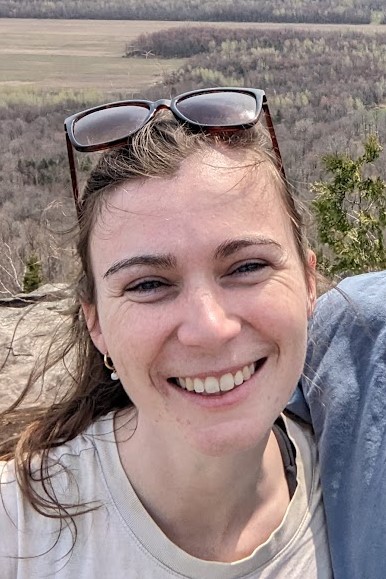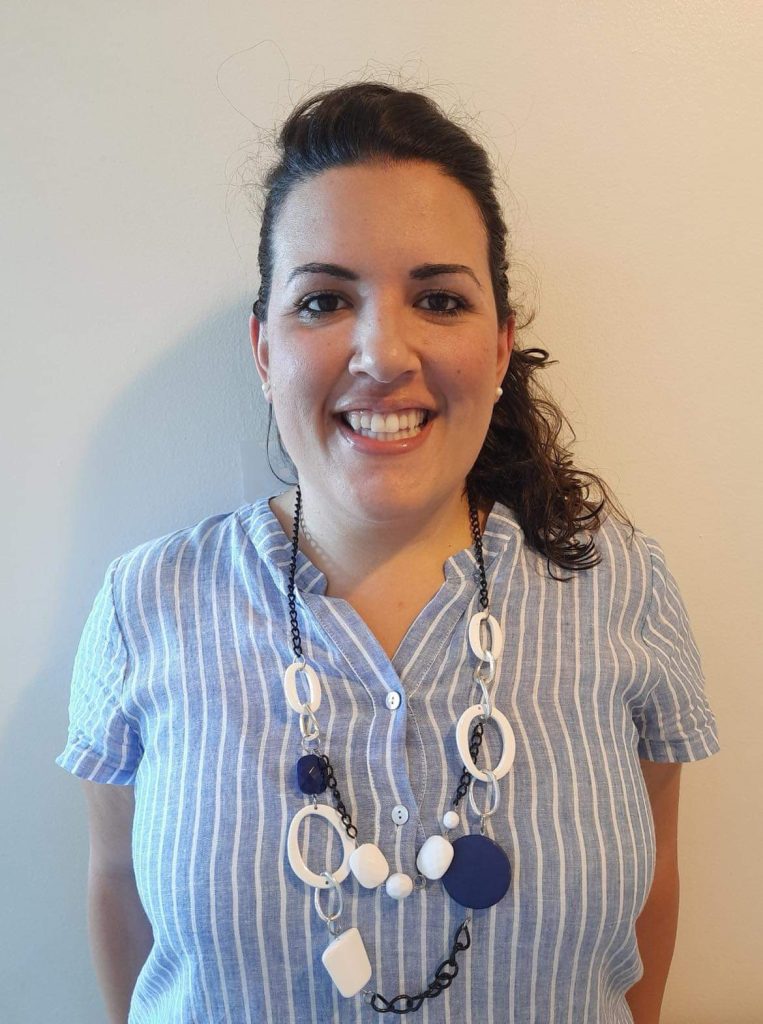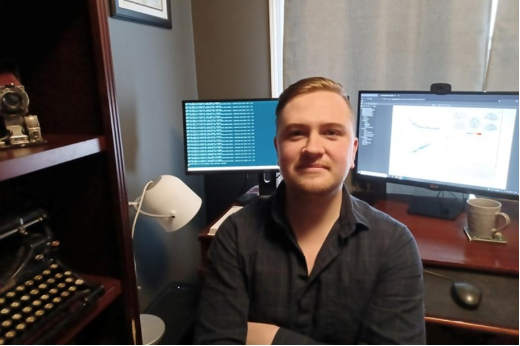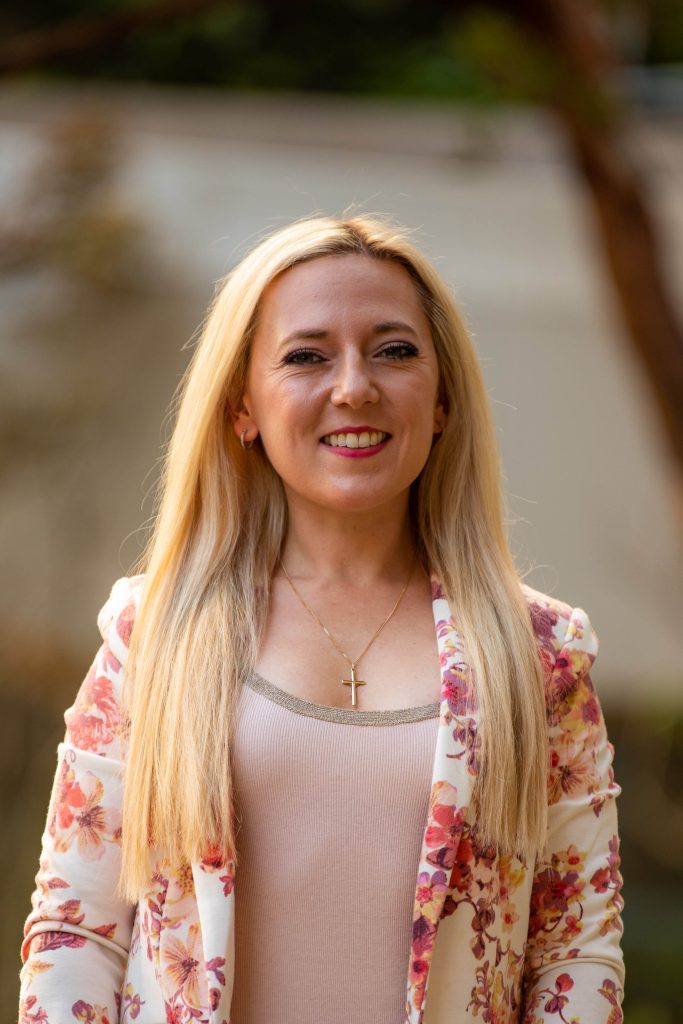2024-01-11 15:00:00 – 2024-01-11 16:30:00
Canadian Neuroscience Seminars – Post-doc series January 11: Josephine Robb, Roberta Piovesana and Xuming Yin

1) Title: Microglial adipose triglyceride lipase (ATGL) regulates neuroinflammation and diet-induced obesity
Speaker: Josephine Robb, University of Montreal Hospital Research Centre
Bio: Josephine is currently a postdoctoral researcher in the lab of Thierry Alquier at the University of Montreal (CRCHUM). Prior to starting this project, she completed her PhD at the University of Exeter in the UK. There she studied the role of the mitochondrial translocator protein 18 kDa (TSPO) in astrocyte metabolism, and how glucose metabolism and NF-kappaB signalling are interlinked in these cells. During her postdoctoral work she has continued to study the role of metabolism in inflammation. She now focuses on the role of lipid droplet dynamics in the inflammatory response of microglia and the implications of this system in whole body metabolism.
2) Title: Endocannabinoid CB1 receptor regulates neuromuscular junction denervation and reinnervation following nerve injury

Speaker: Roberta Piovesana, University of Montreal
Bio: Roberta Piovesana earned her Master’s in Medical Biotechnology and later PhD in Cellular and Developmental Biology at the Sapienza, University of Rome, and University of Manchester where she established adipose-derived stem cell models that led to the production of Schwann-like cells and their role in axonal support and plasticity. Dr. Piovesana is a postdoctoral fellow in Dr. Richard Robitaille’s lab in the Department of Neurosciences at the Université de Montréal. She is currently investigating the role of endocannabinoid CB1 receptors at the Neuromuscular Junction (NMJ) in the regulation of denervation and reinnervation processes following nerve injury. Moreover, Dr Piovesana is also an ALS scholar in Therapeutics program at the Sean M. Healey & AMG Center for ALS at Massachusetts General Hospital (MGH) where she has been recognized for her work on NMJ and the identification of ALS biomarkers.
3) Title: Delayed motor learning in a 16p11.2 deletion mouse model of autism is rescued by locus coeruleus activation
Xuming Yin
Speaker: Xuming Yin, University of Ottawa
Bio: Dr. Xuming Yin completed his PhD at the University of Lyon in France, under the mentorship of Dr. Anne Didier, where he examined the regulation of noradrenaline on adult neurogenesis in the olfactory bulb during perceptual olfactory learning. Presently, he is a post-doctoral fellow in Dr. Simon Chen’s lab at the University of Ottawa.
His current research focus on unraveling the underlying mechanisms in delayed motor learning using mouse models of autism spectrum disorder (ASD).By employing cutting-edge two-photon imaging in awake and behaving mice, Dr. Yin revealed compelling insights into how noradrenaline plays a crucial role in regulating motor learning in the 16p11.2 microdeletion mouse model of ASD (Yin et al., Nat Neurosci, 2021). His work not only advances our understanding of ASD-related delayed motor learning but also holds promise for potential therapeutic interventions.
2024-02-01 15:00:00 – 2024-02-01 16:00:00
Canadian Neuroscience Seminars – Post-doc series February 1, 2024: Lida Sanchez Sanchez and Tara Janes
DATE: Thursday, February 1st, 2024
TIME: 3pm EST (12pm PST)
Zoom link: https://utoronto.zoom.us/j/85750617885

1) Title: Mitochondrial recalibration: a novel fingerprint of the impact of neonatal stress on sleep apnea
Speaker: Lida Sanchez Sanchez, Universite Laval
Bio: Lida Sanchez Sanchez is a Cuban Biologist, passionate about Physiology. Throughout her career she has worked on Animal Bioacoustics, Hearing and Cellular Physiology, Bioinformatics, Evolution, Bioenergetics and Respiratory Physiology. She is currently a Postdoc Fellow at the IUCPQ, an Institute associated to the Université Laval in Quebec city. She is always enthusiastic to collaborate with other researchers and enjoys pretty much teamwork.
Twitter account: @Lidita2689
2) Title: Remembering how to breathe: a progestin-based drug rescues breathing in a rodent model of central chemoreflex impairment

Speaker: Tara Janes, University of Alberta
Bio: Tara A. Janes is currently a postdoctoral researcher in the Pagliardini Lab at the University of Alberta, Department of Physiology. Her PhD (University of Calgary) explored respiratory rhythm generation in snails, and she has continued to study neural control of breathing in frogs (Université Laval) and rodent models. Tara’s main interest is discovering how environment and sensory systems interact during development to shape respiratory control. Her present research is focused on characterizing progesterone-induced modulation of central chemoreception in health and disease.
2024-03-14 14:00:00 – 2024-03-14 15:30:00
CBRS – Virtual Advocacy Training Workshop for Researchers
Thursday March 14th, 2024: 11:00 am — 12:30 pm PT / 2:00 pm — 3:30 pm ET
Join CBRS and Temple Scott Associates for hands-on training in advocacy.
This workshop will empower you with the insights, tools, and confidence needed to advocate effectively for federal investment in a brain initiative for Canada.
Advocacy isn’t just about being heard; it’s about driving real change. Your active involvement, combined with our collective voice, hold tremendous power to shape policies, secure funding, and shape the future of brain research in our country.
Agenda:
• Introduction to the Canadian Brain Research Strategy
• Decoding government decision-making processes and strategies for engaging with Members of Parliament with Temple Scott Associates
• Practical Session: Crafting impactful advocacy narratives and letters with guidance from experienced science communicators
Researchers at all career stages are welcome! No prior experience required.
https://docs.google.com/forms/d/e/1FAIpQLSdmDNf1BhLDLfZbiWtyDQ5tukmwLuLBOn8IKkmPM48wL_NFLg/viewform
2024-03-07 15:00 – 2024-03-07 16:00
Canadian Neuroscience Seminars – Post-doc series March 7, 2024: Darren Clarke & Maeva Gacoin
Speaker: Darren Clarke, Université de Montréal
Exclusive regulation of specific hippocampal inhibitory synapses by distinct subtypes of astrocytes
Darren Clarke is a postdoctoral researcher in the Robitaille Lab in the Département de Neurosciences at the Université de Montréal. His work explores the functional heterogeneity of astrocytes in the mouse CA1 hippocampus through a variety of techniques, including patch-clamp electrophysiology and calcium imaging. Darren’s research currently focuses on astrocyte regulation of inhibitory synapses in the CA1.
Speaker: Maëva Gacoin, McGill University
Cross-species myelin mapping between the developing marmoset and the adult macaque

Maëva Gacoin is a postdoctoral researcher at McGill University in the Sensory & Social Brain Mechanisms lab, led by Dr. Justine Cléry in the Department of Neurology and Neurosurgery. She completed her Ph.D. in Cognitive Neuroscience at Claude Bernard University – Lyon 1, Institut des Sciences Cognitives – Marc Jeannerod, by studying the enhancement of long-term plasticity in the adult macaque visual cortex through behavioral and pharmacological manipulations using MRI techniques. She is now interested in social interactions in non-human primates, brain development, and its plasticity. Her current post-doctoral project focuses on the neurodevelopment of marmosets in a social context, using MRI to document social interaction patterns across the marmoset lifespan and relate them to humans. This involves studying brain functional connectivity, behavior, and myelin mapping.
Twitter: https://twitter.com/MaevaGacoin (@MaevaGacoin)
https://utoronto.zoom.us/j/82837552984
2024-04-04 15:00:00 – 2024-04-04 16:00:00
Canadian Neuroscience Seminars – Post-doc series April 4, 2024: Kathryn Manning & Jordan Chad
1) Kathryn Manning, University of Calgary
Presentation Title:
Child brain structural patterns predict compromised mental health trajectories
Bio:
Kathryn Manning is a postdoctoral fellow in the Developmental Neuroimaging Lab at the Alberta Children’s Hospital Research Institute at the University of Calgary with Dr. Catherine Lebel. She obtained her MSc and PhD in Medical Biophysics at Western University under the supervision of Dr. Ravi Menon. Her research is focused on applying data-driven multimodal MRI analyses to understand healthy and compromised brain development. She is currently working on identifying biomarkers in childhood that predict mental health outcomes and quantifying neuroplastic changes after targeted interventions. In her free time she enjoys playing outside with her one year old daughter and pretending to be a singer-songwriter with her first album titled “Hiding in Leaves”.
Twitter handle (@kat_y_manning)
2) Jordan Chad, University of Toronto / University of Calgary
Presentation Title:
Apparent Gray Matter Loss in Early Adolescence Cannot be Explained by White Matter Growth
Bio:
Jordan Chad is a Toronto-based postdoctoral researcher affiliated with the Developmental Neuroimaging Lab at the University of Calgary. His doctoral research explored mathematical modeling approaches for extracting quantitative information from neuroimaging data, receiving his PhD in 2022 from the University of Toronto, where he maintains a cross-affiliation. He is currently exploring the information that MRI can offer about the structural development of the adolescent brain.
https://utoronto.zoom.us/j/83972690652
2024-05-02 15:00:00 – 2024-05-02 16:00:00
Canadian Neuroscience Seminars – Post-doc series May 2, 2024: Samantha Ayoub & Mohamed Abdelhack
Date/Time: Thursday, May 2nd 2024 (3PM ET/ 12PM PT)
Zoom Link: https://utoronto.zoom.us/j/83798291028
1) Speaker: Samantha Ayoub, University of California San Diego
Title: Delta-9-THC alters cognitive performance differently in HIV-1 transgenic rats compared to wildtype littermates despite no genetic differences observed in THC-induced physiological responses
Bio: Dr. Samantha Ayoub is postdoctoral fellow in the psychiatry department at the University of California San Diego researching the interactive effects of neuropsychiatric disorder and drug use on behavior and the brain. With interests that lie at the intercept of psychiatry and neuroscience, Dr. Ayoub’s work aims to define the neural mechanisms linked to transdiagnostic disordered behavior to help inform individualized treatments for psychiatric medicine. For fun, Samantha likes to go on hiking adventures with her four-legged best friend Millie.
Twitter handle: @SamanthaM_Ayoub
2) Speaker: Mohamed Abdelhack, Centre for Addiction and Mental Health
Title: Sleep-insomnia superposition: the neural correlates of insomnia and their resemblance to longer sleep
Bio: Mohamed is a Postdoctoral Fellow at the Krembil Centre for Neuroinformatics working on using statistical analysis of big data and machine/deep learning to model mental health and psychiatric disorders. He mainly uses fMRI imaging, statistical data analysis, and computational modelling.
He previously worked as a Postdoctoral Researcher in Washington University in St. Louis where he was building machine learning models to predict post-surgical medical complications. He also worked as a researcher in Kyoto University Hospital studying neural activity markers of Schizophrenia using brain decoding and deep learning techniques. His doctoral work in Kyoto University focused on using deep learning models to understand robustness of human brain in recognizing degraded visual input.
He also founded the Arabs in Neuroscience (AiN) initiative, which is a grassroots organization that aims to enhance education and research among Arabic-speaking scientists and students all over the world. Through AiN, he runs an online introductory course in computational neuroscience. He is also a teaching assistant at the Computational Neuroscience Imbizo summer school and a member of the Africa I Know initiative.
Twitter handle: @mabdelhack
https://utoronto.zoom.us/j/83798291028
2024-05-19 – 2024-05-22
2024 CAN Meeting
Join us for the 2024 Canadian Neuroscience Meeting in Vancouver
Meeting Chair: Stephanie Fulton
Co-Chair: Matt Hill
2024-05-28 00:00:00 – 2024-06-07 23:59:59
Frontiers in Neurophotonics Summer School
The 17th Edition of the Frontiers in Neurophotonics Summer School will take place, from May 28 to June 7, 2024, at the CERVO Brain Research Center in Quebec City.
Frontiers in Neurophotonics is an opportunity to meet fellow researchers and students from around the world, discuss and discover the latest advances in live cell optical imaging techniques put in perspective by experimental challenges in the field of neuroscience. The school combines tutorials given by experts in optics, biophotonics, and neuroscience with hands-on experiments involving advanced optical approaches to measure, manipulate and follow molecular events in brain cells and to quantify circuit and synaptic activities in several models.
https://neurophotonics.ca/frontiers-in-neurophotonics-summer-school/
2024-06-03 00:00:00 – 2024-06-06 23:59:59
Genes, Brain and Behavior 2024
International Behavioral and Neural Genetics Society Annual meeting
Western University
London, Ontario Canada
June 3rd-6th, 2024
Local Hosts Anne Simon and Jibran Khokhar
Abstract Submission
Deadline 02/22/2024
Travel award Applications
Call Details
Meeting Registration
Early: Open 02/01/24 ends 03/24/24
https://www.ibngs.org/meetings
2024-09-05 15:00:00 – 2024-09-05 16:00:00
Canadian Neuroscience Seminars – Post-doc series September 5, 2024: Caroline Landelle & Cécilia Tremblay
Speaker: Caroline Landelle, McGill University
Title: Simultaneous functional neuroimaging of the brain and the spinal cord in vivo in human
Speaker Bio:
Caroline Landelle
Caroline Landelle is a post-doctoral researcher working in Prof. Doyon’s laboratory at the Neuro, McGill University, Canada and vice president of the McGill Association of Post-doctoral Fellows (APF). She completed her PhD in cognitive neuroscience in 2019 at Aix-Marseille University, France. There she studied sensorimotor processing at the brain level combining neuroimaging and psychophysics approaches. She then extended her investigation at the spinal levels using advanced techniques such as simultaneous brain and spinal cord functional magnetic resonance imaging (fMRI). In her studies, she investigated various demographic groups, ranging from healthy young and older adults to individuals with Parkinson’s Disease. In addition to advancing our understanding of the role of the spinal cord and its interaction with the brain, through her research, Caroline also demonstrates that the brain-spinal cord fMRI is a powerful research tool, providing better insights into the functional interplay between the human brain and spinal cord, in vivo, that can be used for both fundamental and clinical research.
Twitter: @Caro_Landelle
Linkedin: https://www.linkedin.com/in/caroline-landelle-a65032104/
Speaker: Cécilia Tremblay, Banner Sun Health Research Institute
Title: RNA sequencing of olfactory bulb in aging and Parkinson’s disease reveals gene alterations associated with olfactory dysfunction
Cécilia Tremblay
Speaker bio: Dr Cecilia Tremblay is a postdoctoral fellow in the Civin laboratory for neuropathology at Banner Sun Health Research Institute, in Arizona, USA. She completed her MSc and PhD at the University of Montreal and the University of Quebec at Trois-rivieres. Her thesis contributed to a better understanding of the olfactory dysfunction associated with Parkinson’s disease. Her current research interests aim at better characterizing the neuropathology of aging and neurodegenerative diseases with a specific interest in olfactory neuroscience. She received doctoral scholarships from the Quebec’s research funds and Parkinson Quebec and was awarded postdoctoral fellowships from the Quebec’s research funds and the Canadian Institute of health Research.
Twitter : @cece_tremblay
https://zoom.us/j/98573348791?pwd=xgp6FqF998Z7Fw9a5DRYlPS3jYbh5A.1
2024-09-21 00:00- 2024-09-24 23:59:
25th Bennial Meeting of the International Society for Developmental Neuroscience
Join us for ISDN 2024!
The 25th Biennial Conference of the International Society for Developmental Neuroscience (ISDN) will take place in Montpellier, France, 21-24 September 2024.
As with previous ISDN meetings, ISDN 2024 will feature an exciting and diverse scientific programme focused on recent advances and future directions in fundamental and applied developmental neuroscience.
Click here to receive updates on this event | Follow us on X
2024-10-03 15:00:00 – 2024-10-03 16:00:00
Canadian Neuroscience Seminars – Post-doc series October 3, 2024: Diana Mitchell & Ashley Schormans
Speaker: Ashley Schormans, University of Western Ontario
Title: The Neural Basis of Audiovisual Temporal Processing and Perception: From Cortical Neurons to Behavioural Performance
Bio: Ashley Schormans is a Postdoctoral Associate and BrainsCAN Postdoctoral Fellow at Western University with Dr. Brian Allman. She obtained her PhD in Anatomy and Cell Biology at Western University, where her research focused on investigating cortical crossmodal plasticity following adult-onset noise-induced hearing loss as well as developing novel rodent models of audiovisual temporal perception. As a Postdoctoral Associate she has focused on investigating the specific role of parvalbumin (PV) interneurons within the multisensory cortex on audiovisual processing and temporal perception using a translational behavioural task with transgenic rats, in combination with optogenetics and in vivo electrophysiology. Additionally, she is interested in identifying the specific contribution of top-down modulation from higher-order brain regions on the neural activity in the multisensory cortex, and how this affects audiovisual temporal perception. Outside the lab, she enjoys playing soccer with friends, taking her dog for long walks around London and baking treats for her lab members.
Speaker: Diana Mitchell, Université de Montréal
Title: Deficits in learning linked to altered input/output properties of layer 5 pyramidal neurons in a mouse model of Fragile X Syndrome
Bio: Dr. Diana Mitchell is Postdoctoral Fellow in the Araya Neuro Lab at the Azrieli CHU Sainte-Justine Research Center. She obtained her PhD in Physiology at McGill University under the supervision of Dr. Kathleen Cullen, investigating the coding strategies used by primate vestibular pathways. Her thesis advances our understanding of how early vestibular pathways process self-motion signals with important implications for guiding the development of stimulation protocols used by vestibular implants. During her doctoral studies, she became increasingly interested in understanding how sensory inputs are processed at the level of single neurons and synapses. Her current research aims to uncover changes in synaptic processing and integration in the cortex of a mouse model of Fragile X syndrome at the level of individual neurons and link those to alterations in circuit activity and behavioral performance. The results from her studies challenge the traditional view that Fragile X syndrome is characterized by sensory hypersensitivity, proposing instead a hyposensitivity of sensory inputs and hypersensitivity of predictive inputs onto cortical neurons. In her free time, she enjoys running after her two young children.
Information about Zoom :
Thursday 3rd of October 3:00 PM (EST)
Join Zoom Meeting
https://zoom.us/j/95281489942?pwd=IFfEzL96lVnoaquHCbPabhldo7UTU6.1
Meeting ID: 952 8148 9942
Passcode: 400510
https://zoom.us/j/95281489942?pwd=IFfEzL96lVnoaquHCbPabhldo7UTU6.1
2024-10-06 09:30:00 – 2024-10-09 17:00:00
CAN Booth at SfN
2024-10-06 @ 09:30 – 2024-10-09 @ 17:00
Come meet the CAN team at Booth #1740
Society for Neuroscience
McCormick Place, Chicago, IL Hall A
2301 S Martin Luther King Dr
Chicago, Illinois 60616 United States + Google Map
2024-10-08 18:30 – 2024-10-08 21:00
CAN Social at SfN
2024-10-08 @ 18:30 – 21:00
Join us at SfN! Vu rooftop Chicago is only a few minutes away from McCormick Place
2024-11-05 08:00:00 – 2024-11-08 17:00:00
CSMOpto Open Science Miniature Microscopy Workshop
2024-11-05 @ 08:00 – 2024-11-08 @ 17:00
Miniature microscopy brought a solution for a long-standing need in neuroscience: recording the activity of specific neurons in freely behaving animals. This technique allows for the visualization of individual neurons with high spatiotemporal fidelity. However, the implementation of this method is hindered by challenging surgeries, difficult experiments, and complex data analysis.
To overcome these challenges and improve wide-spread adoption of miniature microscopy in biomedical and neuroscience research, CSMOpto is offering an intensive workshop for neuroscientists who would like to integrate miniature microscopy into their skillset.
Key Dates
| Application Deadline | September 20, 2024 at 11:59 PM MT |
| Notification of Decision | October 2024 |
| Workshop Dates | November 5-8, 2024 |
Campus Alberta Neuroscience
https://www.albertaneuro.ca/training-and-events/csmopto-miniature-microscopy-workshop
2024-11-07 15:00:00 – 2024-11-07 16:00:00
Canadian Neuroscience Seminars – Post-doc series November 7, 2024: Allison Barry and Sietske Annette Berghuis
Speaker #1 Dr. Allison Barry. University of Vienna and University of Texas at Dallas. Bluesky/Twitter: @aliibarry
Title : Predicting “pain genes”: multi-modal -omics data integration using probabilistic classifiers and interaction networks
Bio: Ali has a background in sensory physiology and bioinformatics, with a focus on pain pathophysiology. After an undergraduate degree in Neuroscience at Dalhousie University in Canada, she did her MSc through the Max Planck Institute for Experimental Medicine, followed by a PhD at the University of Oxford with Prof. David Bennett, looking at the molecular profiling of primary sensory neurons and their role in neuropathic pain. She currently splits her time between the University of Vienna and University of Texas at Dallas using multi-omic methods to understand pain pathophysiology.
Speaker #2 Dr. Sietske Annette Berghuis. York University.
Title: Thyroid Hormone Metabolism at Adolescence and Prenatal levels of Persistent Organic Pollutants.
Sietske Berghuis, MD PhD, is a post-doctoral fellow at York University, Toronto. She received her Medical Degree and PhD at the University Medical Center in Groningen, the Netherlands. The focus of her PhD was on the effects of prenatal exposure to persistent organic pollutants on neurodevelopment and the endocrine system until adolescence. Sietske is a psychiatrist in training and interested in understanding the possible role of environmental chemicals in the etiology of neurodevelopmental disorders such as autism spectrum disorders and attention deficit and hyperactivity disorder. The current research projects aim to assess the impact of early-life exposure to chemical compounds on neuropsychological outcomes and thyroid hormone metabolism in children.
Sietske did receive the Academy Ter Meulen Grant from the Royal Netherlands Academy of Arts and Sciences (KNAW) in The Netherlands and a post-doctoral grant from York University to support her for her current post-doctoral fellowship at the research group of prof. C. Till at York University.
Topic: CNS-PDS meeting
Time: Nov 7, 2024 02:30 PM Eastern Time (US and Canada)
2024-11-08 08:00:00 – 2024-11-09 17:00:00
3rd Annual Canadian Movement Disorders Meeting
2024-11-08 @ 08:00 – 2024-11-09 @ 17:00
Abstract deadline: Sept 15, 2024
Event hosted by Canadian Movement Disorders Society and Parkinson Canada. This is a one-of-a-kind Canadian conference that will bring together researchers, clinicians, allied health professionals, patient advocacy groups, and industry representatives from across the country.
Note that the organizers offer some complimentary hotel, travel, and registration spots for research and clinical trainees whose research is focused on movement disorders. They are also offering to cover travel, hotel, and registration costs for up to one MD and one allied health professional within each of the movement disorder clinics across Canada.
https://web.cvent.com/event/1f5c04bd-55af-4d46-aa6b-29b5d28d0591/summary
2024-12-05 15:00:00 – 2024-12-05 16:00:00
Canadian Neuroscience Seminars – Post-doc series December 5, 2024: Josh Neudorf & Paige Whyte-Fagundes
Speaker: Josh Neudorf, Simon Fraser University
Title: Structural Brain Network Configurations Unique to Older Adults Help to Spare Cognitive Function

Josh Neudorf completed his B.Sc., Master’s, and PhD degrees under the supervision of Ron Borowsky at the University of Saskatchewan, studying cognitive and computational neuroscience. His Master’s thesis focused on the brain networks supporting language and semantic memory, while his PhD thesis focused on computational network neuroscience questions about how structural connectivity (measured with diffusion MRI) constrains and supports functional connectivity (measured with functional MRI), using graph theory, complexity, and deep learning methods in healthy young adults and patients with epilepsy. Josh held a NSERC Postdoctoral Fellowship and now holds a Canadian Neuroanalytics Scholars Program Postdoctoral Fellowship in Randy McIntosh’s lab at the Institute for Neuroscience & Neurotechnology, Simon Fraser University, investigating the structural and functional connectivity changes in older age that help to preserve cognitive ability, the unique functional network effects of acute sleep restriction on older adults, and the brain connectivity biomarkers of Alzheimer’s Disease.
Paige Whyte-Fagundes, University California San Francisco
Title: Nano-precision STXBP1-E therapy using preclinical zebrafish models and machine learning

Paige Whyte Fagundes, originally from Toronto, earned her PhD under Dr. Georg Zoidl’s mentorship, where her research centered on elucidating the mechanisms of the pannexin1 protein in health and disease. This work completed with a publication exploring the use of zebrafish as a model to investigate targeting pannexin1 for epilepsy treatment. Continuing with this momentum, she began a postdoctoral fellowship with Dr. Scott Baraban at the University of California San Francisco in August 2021. Her current research focuses on drug discovery and therapeutic strategies for rare childhood genetic disorders of epilepsy, leveraging the zebrafish model system to bridge the gap between molecular insights and clinical applications.
